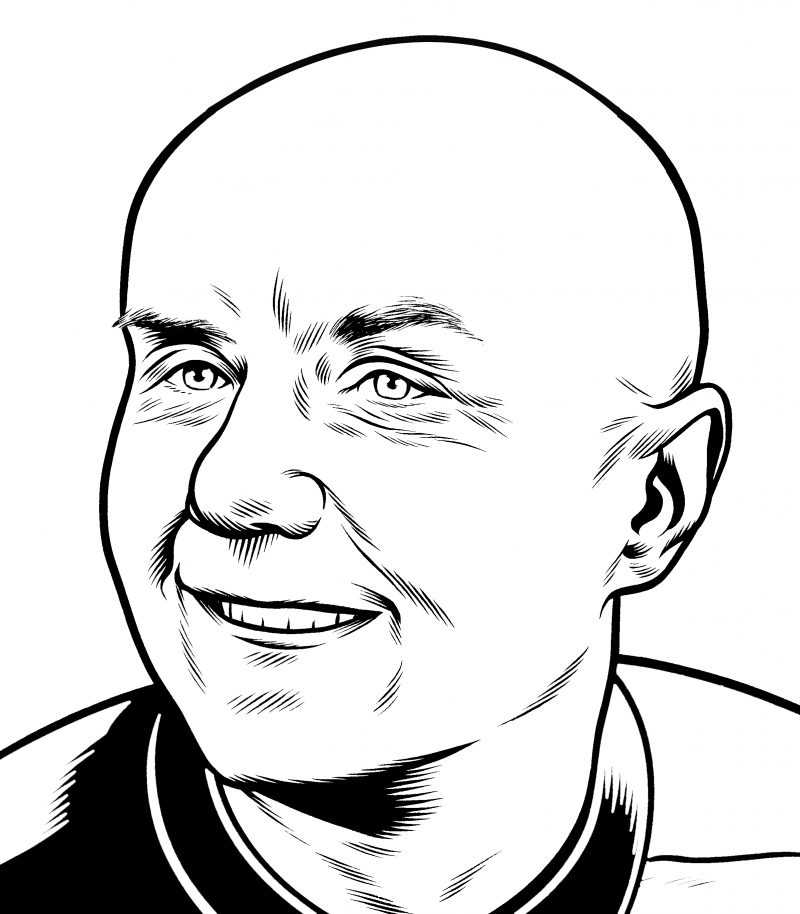From his debut novel, Trainspotting (1993), about the drug-addled daily existence of a gang of disaffected Edinburgh youths, to his latest novel, The Bedroom Secrets of the Master Chefs (2006), concerning a womanizing alcoholic’s journey toward self-knowledge, Irvine Welsh’s gritty prose has earned him notoriety on both sides of the Atlantic as one of contemporary culture’s most nihilistic chroniclers of urban depravity. In a review of Welsh’s novel Glue (2001) for the New York Times, Jonathan Lethem called Welsh “an unflinching contemporary Dickens.” On the other hand, during the 1996 presidential campaign, Senator Bob Dole went as far as to decry Trainspotting for its moral decay and glorification of drug use without even having read the book or seen the film adaptation.
I met Irvine Welsh in June, when he was in San Francisco with his writing partner Dean Cavanagh for the world premiere of their new play, Babylon Heights (2006), a black comedy about the dwarf actors drafted to play Munchkins in the 1939 movie The Wizard of Oz. It might feature little people, but true to form for the creative force behind such titles as Filth (1998), Porno (2002), and You’ll Have Had Your Hole (1998), Babylon Heights is hardly family viewing. As the sodomy- and suicide-riddled plot unravels from the opening word (“Cocksucker!”) to the closing sentiment (“Open up, you lousy cocksuckin’ giraffe-assed freaks!”), we feel more like we’re getting drunk in one of Welsh’s derelict Edinburgh dive bars than skipping down the Yellow Brick Road.
Welsh is best known for his novels and short stories, but he’s also recently been developing a career as a screen and stage writer. Babylon Heights is the author’s second play (the first being You’ll Have Had Your Hole) and his first cowritten work for the stage with erstwhile screenwriting partner Cavanagh. Besides undertaking projects for British television networks like Channel 4 with Cavanagh, one of Welsh’s current film projects, titled The Meat Trade (shooting January 2007), is a screenplay based on the nineteenth-century West Port murders. Welsh has transported the historical material to the familiar territory of present-day Edinburgh, with serial killers William Burke and William Hare depicted as brothers who steal human organs to meet the demands of the global transplant market. The author has also started to explore directing, having created a short film to accompany the track “Atlantic” from the band Keane’s album Under the Iron Sea (2006).
Despite his hardcore image as a writer and tough physical presence—the bald scalp, wiry physique, faded-skull...
You have reached your article limit
Sign up for a digital subscription and continue reading all new issues, plus our entire archives, for just $1.50/month.
Already a subscriber? Sign in





